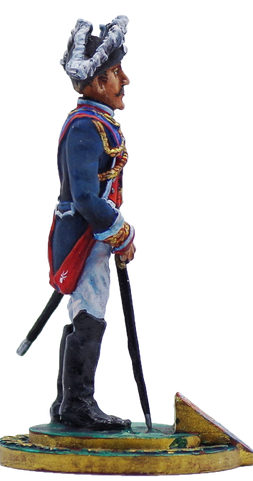
Jacobo Fitz-James Stuart
Duke of Alba
Jacobo Fitz-James Stuart y Falcó, 17th Duke of Alba, 10th Duke of Berwick (17 October 1878 – 24 September 1953) was a Spanish peer, diplomat, politician, art collector and Olympic medalist. He was one of the most important aristocrats of his time and held, among other titles, the dukedoms of Alba de Tormes and Berwick, the Countship of Lemos, Lerín, Montijo and the Marquessate of Carpio. The Duke was born on 17 October 1878 in Palace of Liria in Madrid, the first son of Carlos María Fitz-James Stuart, 16th Duke of Alba and María del Rosario Falcó, 21st Countess of Siruela. Don Jacobo was baptised only a few days after with the name "Santiago", a variant of Jacobo. His godparents were his paternal grandfather, Jacobo Fitz-James Stuart, 15th Duke of Alba and his maternal grandmother María del Pilar Ossorio y Gutiérrez de los Ríos, 3rd Duchess of Fernán Núñez. He carried out his first studies under private tutors, but was later sent to England to study at Beaumont College, followed by Eton. After returning to Spain, he continued with his higher education enrolling in the Universidad Central de Madrid, where he obtained his bachelor's degree in Law. He served as Lord of the Bedchamber to the young King Alfonso XIII, who had acceded on his birth.


The Alabardero is the individual of the Royal and Laureate Corps of Halberdier Guards in charge in the Kingdom of Spain of the custody of the Royal Alcázares and accompanying the Kings on all their expeditions. In Spain, as in other European monarchies, there has always been a Special Guard to guard the Kings and highlight public events. In Spain they made up the guards of the Kings and Princes of the different peninsular kingdoms, of people chosen for their intimate trust and traditional privilege, as well as other complementary people to reinforce the bodyguards, chosen also for privilege but for their demonstrated skill and experience. in the war and who were in charge of the immediate custody of the Monarch, performing inside and outside the royal fortress a service analogous to that carried out in the second half of the 19th century by the Royal Corps of Halberdier Guards and others in Spain. During the Reconquista the kings had their special guards, such as the Monteros de Espinosa of the county and later royal court of Castile, which at the end of the Middle Ages and the formation of the Spanish nationality had an important position. The Corps of Halberdiers was established in the early years of the 16th century by order of King Fernando the Catholic in 1504.
Duke of Alba de Tormes (Spanish: Duque de Alba de Tormes), commonly known as Duke of Alba, is a title of Spanish nobility that is accompanied by the dignity of Grandee of Spain. In 1472, the title of Count of Alba de Tormes, inherited by García Álvarez de Toledo, was elevated to the title of Duke of Alba de Tormes by King Henry IV of Castile. The dukedom of Alba de Tormes is one of the most significant noble titles of Spain and gives its name to the House of Alba. Over the centuries, members of three distinct family dynasties have held the title in succession – the House of Álvarez de Toledo, the House of Silva (extinct in 1802) and the House of Fitz-James Stuart, which descends from an illegitimate son of King James II of England. The House of FitzJames Stuart, or simply FitzJames, is a noble house founded by James FitzJames, 1st Duke of Berwick. He was the illegitimate son of James II & VII, King of England, Scotland and Ireland, a monarch of the House of Stuart. After the Glorious Revolution of 1688, the 1st Duke of Berwick followed his father into exile and much of the family's history since then has been in Spain and France, with several

members of the family serving in a military capacity. The house has two main branches. The senior branch, carrying the title of Duke of Berwick and residing in Spain, derived from the 1st Duke's first marriage to Honora Burke, Countess of Lucan. This branch has collected many titles throughout its history, including a few grandeeships of Spain, with some members acting as ambassadors or military officers.
Awards: Collar, sash and star of the Royal Victorian Order, Stars of the Order of Santiago and the Royal Cavalry Armory of Seville.






